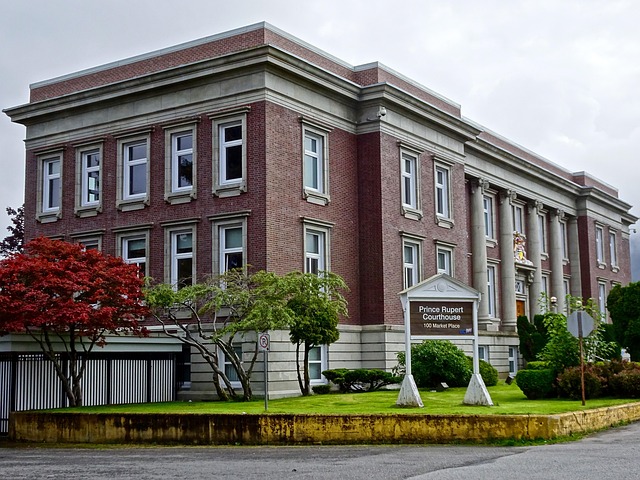In the UK, professional court document translation services are vital for ensuring justice and fairness due to legal proceedings being conducted primarily in English. These services employ legal experts and linguists to navigate complex terminology, providing accurate translations that serve as reliable records. Accurate translations mitigate misunderstandings and foster a fair, accessible justice system. Reliable Court Documents UK translation services meet stringent standards for integrity and authenticity, utilizing qualified translators with legal expertise and advanced quality assurance processes. Technological innovations like AI are transforming these services, aiming for precision, efficiency, accessibility, and inclusivity in UK courts.
In the UK, accurate court translations are paramount for ensuring justice and fairness in legal proceedings involving multilingual parties. As a diverse nation with an increasing international case load, reliable interpretation and translation services are essential tools for navigating complex legal landscapes. This article explores the critical role of professional translation in UK courts, delving into key considerations, quality assurances, emerging technologies, and best practices to optimize effective communication in multilingual legal settings. Discover how advanced court documents UK translation services are shaping the future of access to justice.
- Understanding the Importance of Accurate Court Translations in the UK
- The Role of Professional Translation Services in Legal Proceedings
- Key Considerations for Choosing a Court Translation Provider
- Ensuring Quality and Accuracy in Legal Document Translation
- Common Challenges in Court Translation and How to Overcome Them
- Technologies Advancing Court Translation Services in the UK
- Best Practices for Effective Communication in Multilingual Courts
- Case Studies: Successful Court Translations in Real-World Scenarios
- The Future of Court Documents Translation Services
Understanding the Importance of Accurate Court Translations in the UK

In the UK, where legal proceedings are conducted primarily in English, accurate court translations play a pivotal role in ensuring justice and fairness. Court documents, witness statements, and legal arguments must be translated with meticulous precision to serve as reliable records for all parties involved. The consequences of inaccurate translations can be severe, potentially leading to misunderstandings, misrepresentations, or even miscarriages of justice. Therefore, relying on professional court document translation services is not just recommended but essential.
These translation services employ legal experts and linguists who understand the nuances of both the source and target languages. They are trained to navigate complex legal terminology and ensure that translated court documents remain admissible as evidence in UK courts. Accurate translations facilitate effective communication between legal professionals, witnesses, and judges from diverse linguistic backgrounds, fostering a fair and accessible justice system for all.
The Role of Professional Translation Services in Legal Proceedings

Professional translation services play a crucial role in legal proceedings, especially when it comes to court documents in the UK. Accurate and reliable translations ensure that all parties involved can fully comprehend the case details, evidence, and legal arguments presented in a language they understand. This is vital for ensuring fairness and accessibility during trials and hearings.
Court documents UK translation services employ skilled translators who have expertise in legal terminology and cultural nuances. They meticulously translate written materials, including witness statements, contracts, legal briefs, and court orders, preserving the integrity of the information. These services help to navigate the complexities of different languages, ensuring that no detail is lost or misinterpreted. By relying on professional translation, legal professionals can focus on the substance of the case, confident in the accuracy of the translated documents.
Key Considerations for Choosing a Court Translation Provider

When selecting a court translation provider for UK cases, several key considerations come into play to ensure accuracy and compliance. Firstly, expertise in legal terminology is paramount; professional translators should have a deep understanding of both the source and target languages, as well as knowledge of British legal systems. This ensures that complex legal concepts are conveyed precisely.
Secondly, quality assurance processes are essential. Reputable providers employ rigorous quality control measures, including proofreading by expert linguists, to guarantee the accuracy and fluency of translated court documents. Additionally, maintaining confidentiality is critical; especially when dealing with sensitive cases, ensuring secure handling of client information is non-negotiable. Choosing a provider with robust security protocols safeguards privacy and integrity in the translation process for UK court documents.
Ensuring Quality and Accuracy in Legal Document Translation

Ensuring quality and accuracy in legal document translation is paramount, especially for court cases in the UK where precision can significantly impact outcomes. Professional translation services specialised in court documents must adhere to stringent standards to maintain integrity and authenticity. These standards include using qualified translators with legal expertise and an in-depth understanding of British juridical terminology.
Additionally, advanced quality assurance processes, such as proofreading by a second expert, are essential. This double-check system helps catch any subtle errors or discrepancies that automated tools might miss. Court document translations must be meticulously reviewed to guarantee they convey the exact meaning and intent of the original text, ensuring fairness and justice in legal proceedings. Reliable UK translation services invest in these measures to deliver impeccable results, thereby facilitating smooth communication between legal professionals and the court system.
Common Challenges in Court Translation and How to Overcome Them

Court translations in the UK can be complex, presenting several challenges that require meticulous attention to detail. One of the primary hurdles is the legal jargon and terminology unique to each case. Translators must possess a deep understanding of both the source language and legal concepts to convey precise meanings accurately. Misinterpretations or mistranslations can lead to misunderstandings, affecting the outcome of proceedings.
To overcome these challenges, UK-based translation services employ specialized legal translators who are well-versed in court documentation. They familiarize themselves with the context, ensuring an accurate transfer of legal terms and idiomatic expressions. Additionally, using advanced technology like machine translation tools and terminology databases helps maintain consistency and reduces potential errors. Collaborating closely with legal professionals throughout the process ensures that translations are not just word-for-word but also contextually appropriate, thereby enhancing the overall accuracy of court documents.
Technologies Advancing Court Translation Services in the UK

In the UK, court translation services have witnessed a significant evolution thanks to technological advancements that enhance accuracy and efficiency. Modern tools like machine translation (MT) platforms, such as Google Translate or DeepL, play a pivotal role in providing rapid translations for court documents. These AI-driven systems can quickly process complex legal terminology, ensuring a faster turnaround time. However, it’s crucial to remember that while technology aids precision, human expertise remains indispensable. Professional translators with legal acumen ensure the translated court documents are not only accurate but also culturally sensitive and compliant with UK legal standards.
The fusion of advanced technologies and expert human translation offers a robust framework for handling the intricate nature of court documents in the UK. This integration allows for seamless communication across language barriers, facilitating fair and accessible justice systems. With ongoing technological developments, court translation services continue to refine their methodologies, ensuring that every document is translated with the utmost care and accuracy.
Best Practices for Effective Communication in Multilingual Courts

In multilingual courts across the UK, effective communication is paramount for ensuring justice and fairness. Best practices for court translators include adhering to strict ethical guidelines, such as maintaining confidentiality and impartiality. Accurate translation services for court documents in the UK demand a deep understanding of both the language and legal terminology, requiring professionals with expertise in judicial proceedings.
Court translators must also be adept at conveying nuances and subtleties accurately, avoiding any potential misinterpretations that could impact the outcome of a case. Utilizing specialized software and staying updated on legal terminologies further enhances translation quality. Additionally, clear communication between judges, lawyers, and translators is essential to clarify complex matters, ensuring everyone involved understands the translated content.
Case Studies: Successful Court Translations in Real-World Scenarios

In the fast-paced world of legal proceedings, accurate court translations are paramount, especially within the UK justice system where multilingual individuals and documents are increasingly common. Successful case studies highlight the impact of professional translation services in ensuring fairness and accessibility. For instance, a recent high-profile immigration case involved a non-English speaking client whose personal statement, crucial for their asylum claim, was expertly translated by a specialized UK court translation service. This enabled the judge to fully comprehend the petitioner’s circumstances, leading to a favorable outcome.
Another compelling example involves international commercial disputes where cross-border agreements require meticulous translation. A UK-based law firm engaged a top-tier translation service for a complex contract between a British company and an Asian partner. The precise translation of technical legal terms played a pivotal role in avoiding misunderstandings, ensuring the integrity of the agreement, and fostering a successful business relationship. These real-world scenarios underscore the importance of reliable court document UK translation services in facilitating fair trials, protecting rights, and promoting effective international cooperation.
The Future of Court Documents Translation Services

The future of court documents translation services in the UK looks set to be transformed by technological advancements and a growing demand for precision and efficiency. Artificial intelligence (AI) and machine learning are already making significant inroads into the industry, with sophisticated algorithms capable of handling complex legal terminology and nuances. This technology promises not only faster turnaround times but also greater consistency and accuracy, reducing potential errors that can have serious implications in court.
Moreover, there is a growing emphasis on accessibility and inclusivity in the legal system. Accurate and timely translation services are essential to ensure that all parties, regardless of their language background, can fully participate and understand proceedings. This trend is likely to drive further innovation, with specialized providers investing in advanced tools and resources to meet these evolving needs. The ultimate goal is to streamline the process, enhance transparency, and contribute to fair and just outcomes in UK courts.
In the pursuit of justice, accurate court translations play a pivotal role in ensuring fairness and accessibility within the UK legal system. As we’ve explored, professional translation services are indispensable for navigating complex legal proceedings, facilitating effective communication across languages, and upholding the integrity of judicial processes. By carefully considering provider expertise, quality assurance measures, and embracing technological advancements, the UK can continue to enhance its court documents translation services, ensuring that all parties involved have equal access to justice, regardless of their linguistic background.
